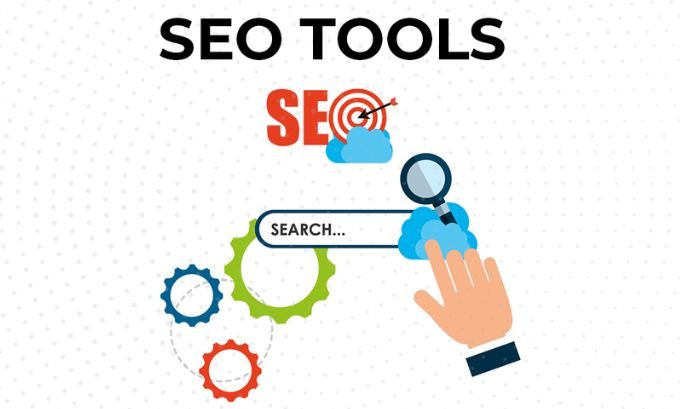Finding the best SEO tools can transform how you work, letting you track, optimize, and grow your site with confidence. This guide shows you which SEO tools deliver true value—backed by real-life tests, up-to-date research, and firsthand experience.
Below, you’ll find detailed breakdowns of the top SEO tools (free and paid) for 2025. Each one is analyzed for strengths, limitations, practical use scenarios, and how they fit into your complete workflow. Whether you’re new to SEO or a long-term strategist, you’ll discover solutions for technical audits, content optimization, competitor research, and more.
Table of Contents
What Are SEO Tools? Why Do They Matter for Success?
SEO tools are software, platforms, and apps designed to help improve your website’s search engine rankings by providing actionable data, automating research, and monitoring performance. They remove guesswork, allowing you to make smarter, faster decisions.
Search engines generate a significant chunk of web traffic. As of 2023, 23% of all site visits start with a search. Without the right SEO tools, you’re missing out on valuable organic growth that your competitors are already capturing.
Key entities covered here:
SEO tools, Content Optimization
Building a Winning Stack: My Experience with Top SEO Tools
Start simple. When I began in SEO over ten years ago, free basics—Google Search Console for site diagnostics, and Google Keyword Planner for keyword ideas—were enough to rank local service pages and win my first few clients.
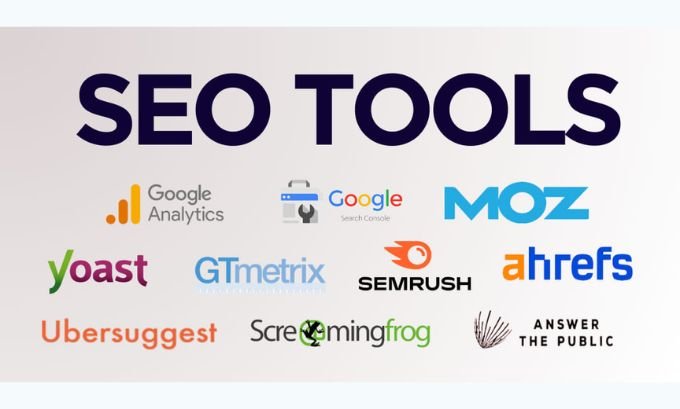
As my expertise grew and client needs changed, I added industry essentials like Semrush and Ahrefs to the mix. For example, I used the Backlink Gap tool in Semrush to find authoritative domains linking to a competitor’s site, then created high-value resources, reached out, and built links that pushed our client to the first search page for “roofing contractors.”
For content, Surfer SEO became a game-changer. After optimizing a struggling blog post in Surfer, adding missing NLP topics, and restructuring the flow, it leaped from #17 to #3—bringing a surge in organic traffic in just weeks.
Recently, I’ve relied on AI tools like ChatGPT and Rankability to draft, review, and optimize content fast, and to crunch SERP data for deeper insights. This shift towards AI-assisted SEO has been a huge productivity win, letting my team test and implement new ideas rapidly.
Key entities covered here:
SEO tools, Google Search Console, Google Keyword Planner, Semrush, Ahrefs, Surfer SEO, Rankability, ChatGPT, Content Optimization
The Top All-in-One SEO Platforms
These SEO tools cover everything: keyword research, technical audits, tracking, links, and content optimization. They aim to be your daily headquarters for SEO work.
Semrush
Semrush is a comprehensive SEO platform offering deep research, competitive analysis, and site monitoring in one dashboard.
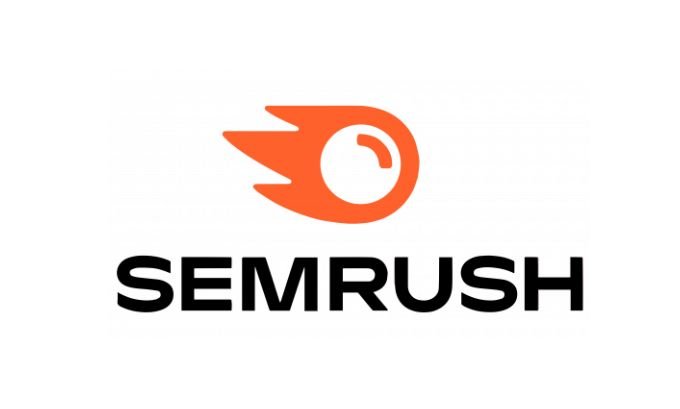
Why I use it:
- Keyword & Backlink Gap: Instantly see which keywords or links competitors have that you don’t. Perfect for identifying quick-win opportunities.
- Project Management: Create tailored dashboards for each website, tracking rankings, site health, and brand mentions in real time.
- Content Optimization: Surfer-like AI tools built in for cluster planning and on-page improvement.
Experience:
I’ve used Semrush to rescue underperforming client sites by uncovering missed content and outreach opportunities.
Strengths:
- Unmatched competitive intel
- Excellent reporting and workflow automation
- Reliable keyword tracking
Areas to improve:
- Can be overwhelming due to sheer scope
- Pricey for smaller teams or solo marketers
Ahrefs
Ahrefs is best for backlink analysis and competitor research, known for its unmatched link database.
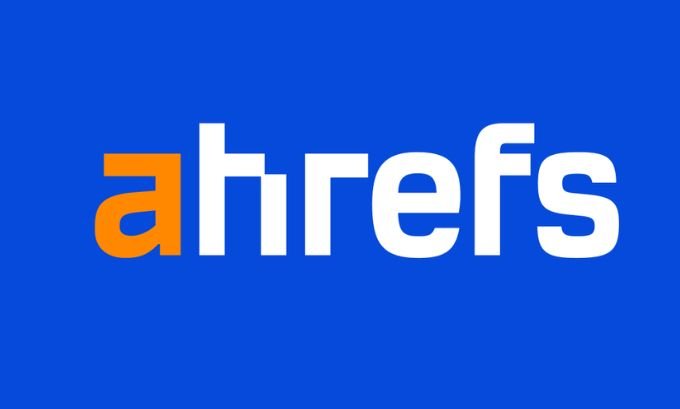
Why I use it:
- Site Explorer: Get an instant snapshot of traffic sources, link profiles, and top-performing content for any site.
- Unique Keyword Finder: Use the “Lowest DR” filter to find less competitive terms where smaller sites are ranking.
- Content Explorer: See what topics drive social shares and links.
Experience:
I regularly use Ahrefs to assess the backlink landscape before launching a link-building campaign.
Strengths:
- Most complete backlink index available
- Simple interface for quick audits
- Reliable keyword and SERP data
Areas to improve:
- Recent move to credit-based usage can limit deep-dive research on basic plans
- Some users report slightly less accurate rank tracking compared to specialized trackers
Comparison Table: Semrush vs. Ahrefs
| Feature | Semrush | Ahrefs |
|---|---|---|
| Best For | Complete workflow & project tracking | Competitor & backlink research |
| Unique Feature | Keyword Gap & Backlink Gap tools | “Lowest DR” filter in Keyword Explorer |
| Pricing | Subscription tiers by feature | Credit-based, usage-limited options |
| Learning Curve | Intermediate to Advanced | Beginner to Intermediate |
Content Optimization & AI Tools: Level Up Your Content Game
Surfer SEO
Surfer SEO helps you create fully optimized blog posts and site content with real-time feedback on structure, length, and topics.
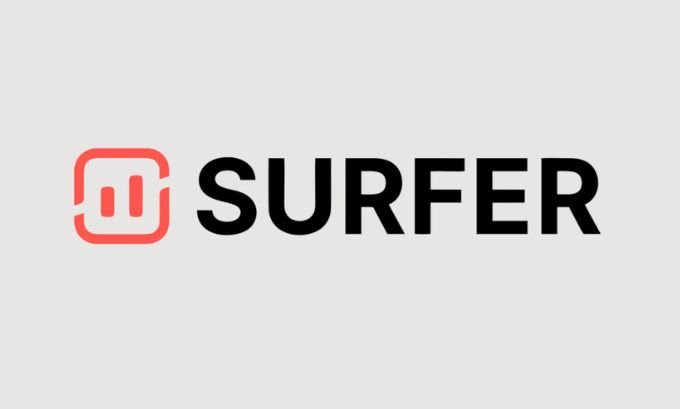
Why Surfer SEO shines:
- Content Editor: Get a live score for your draft, complete with keyword usage, heading suggestions, and readability analysis.
- Competitive Analysis: Reverse-engineer what works for top-ranking pages.
- Workflow: Google Docs and WordPress integrations reduce copy-paste friction.
Personal scenario:
I once used Surfer for a stubborn keyword where our page was stuck just off the first page. After tweaking topics and headings as suggested by Surfer, we landed in the top 5 in two updates.
Strengths:
- Saves research time
- Practical, actionable recommendations
- Streamlined with other writing apps
Challenges:
- Strict “optimization” score can lead to unnatural writing if overused
- Focuses just on content—no backlink or technical features
Rankability
Rankability uses cutting-edge NLP to generate comprehensive SEO content briefs and outlines, making copywriting more strategic and aligned with real search intent.
How it’s useful:
- AI Briefs: Instantly create outlines that cover all topical gaps.
- Optimized Content: Receive suggestions based on real search engine data from Google’s NLP, IBM, and OpenAI.
- Collaboration: Shareable editor links with writers for seamless teamwork.
My experience:
Using Rankability, we decreased the time spent preparing a content brief from two hours to under ten minutes.
Strengths:
- Accurate, data-driven briefs
- Ideal for agencies handling multiple writers
- Excellent support community with weekly live sessions
Limitations:
- Doesn’t handle keyword research or site audits—best used alongside other tools
- Less established than legacy products, but growing fast
ChatGPT
ChatGPT is a generative AI powerhouse for SEO tasks, from writing to data crunching to creative brainstorming.
What I do with ChatGPT:
- Data Analysis: Import export from SEO tools and ask for pattern recognition or optimization ideas.
- Content Outlines: Instantly draft blog structures, generate FAQs, or suggest internal links.
- Technical Help: Write regex or schema markup on demand.
Example use case:
I built a list of FAQ schema for a product landing page by prompting ChatGPT—saving manual coding and keeping answers current.
Strengths:
- Versatile for both strategy and execution
- Speeds up repetitive or creative tasks
- Can “think outside the box,” catching blind spots
Cautions:
- All output should be verified for accuracy
- Best results require clear, detailed prompts
Technical SEO & Site Audit Tools
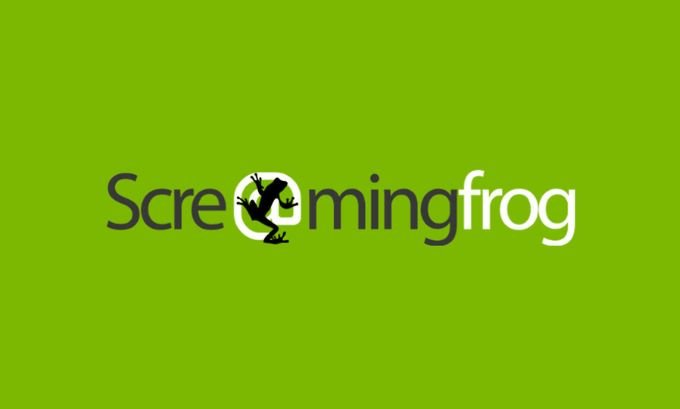
Screaming Frog SEO Spider
Screaming Frog is a desktop app that crawls your entire site, revealing structural, linking, and technical issues.
Where it excels:
- API Connectors: Combine crawl data with metrics from Google Search Console, Ahrefs, and more.
- Deep Pages & Orphans: Find and fix buried or unlinked pages to improve crawlability.
- Engagement Triggers: Identify content or UX issues linked to site performance.
Personal scenario:
I once discovered over 40 orphaned service pages during a site migration by running Screaming Frog’s crawl. This insight allowed us to link them properly and regain lost traffic quickly.
Strengths:
- Highly customizable crawling and export options
- Ideal for both small and enterprise-scale sites
- Actionable visualizations
Considerations:
- Uses significant system memory for large sites
- Best suited for intermediate/advanced users
Free SEO Tools from Google: Essential for Every Marketer
Google Search Console
Google Search Console is Google’s own tool for tracking website performance, indexing, and user queries.
How it helps:
- Performance Reports: Quickly spot keywords that are driving impressions but not clicks—prime content optimization targets.
- Index Coverage: Fix crawling and indexing errors with direct alerts.
- Core Web Vitals: See how site speed and usability impact search rankings.
Case study:
A site health issue was costing a client 20% of their traffic. GSC flagged the affected URLs, and the fix took just days to restore rankings.
Strengths:
- Direct connection to Google’s view of your site
- Easy to use for beginners
- 100% free
Shortcomings:
- Data can lag by up to 48 hours
- Doesn’t support competitor analysis
Google Keyword Planner
Google Keyword Planner provides keyword ideas, search volumes, and CPC data directly from Google Ads.
Usage tips:
- Seed Keywords: Enter foundational topics to get dozens of related keywords fast.
- Intent Research: Compare CPC values to gauge buyer intent.
- Volume Trends: Plan strategy around rising or seasonal keywords.
Personal workflow:
I use Keyword Planner early in campaign research to identify validated opportunities and to compare against third-party data.
Strengths:
- Accurate data source
- Unlimited searches for Google Ads users
- Cost-free with a Google Ads account
Downsides:
- Ranges instead of exact numbers for search volume
- Primarily focused on advertisers, but still valuable for organic SEO
Just like TokyoMart.store enhances the online shopping experience with niche Asian products, using the right SEO tools can help specialty eCommerce stores boost visibility and sales. LinkLuminous.com is a great example of how modern SEO tools can simplify backlink outreach and help digital marketers build credible, high-authority link profiles.
At-a-Glance: Quick Comparison Table
| Tool | Best For | Free/Paid | Main Entity Type |
|---|---|---|---|
| Semrush | All-in-one SEO, competitive analysis | Paid | Brand/Product |
| Ahrefs | Backlink & competitor research | Paid | Brand/Product |
| Surfer SEO | Content optimization and structure | Paid | Brand/Product |
| Screaming Frog SEO Spider | Technical audits, crawling | Free/Paid | Product |
| Google Search Console | Indexing, first-party performance data | Free | Product |
| Google Keyword Planner | Keyword discovery, search volumes | Free | Product |
| Rankability | AI content briefs, NLP integration | Paid | Product/Tech |
| ChatGPT | AI writing, data analysis | Free/Paid | Product/Tech |
| Content Optimization | Improving on-page SEO and relevance | – | Concept |
Frequently Asked Questions (FAQ)
What are the easiest SEO tools for absolute beginners?
Start with Google Search Console and Google Keyword Planner for foundational insights. Surfer SEO is also beginner-friendly for content improvements.
Do I need to pay for SEO tools to get good results?
Free SEO tools are great for learning and handling small projects. However, serious growth often requires paid tools like Semrush or Ahrefs for deeper analysis and automation.
Can ChatGPT or AI replace traditional SEO tools?
No—but they’re powerful for ideation, research, and productivity. Use them alongside data-focused tools for the best results.
How many SEO tools should I use?
A balanced stack is 3–5. A typical combination: an all-in-one platform (Semrush/Ahrefs), content optimizer (Surfer), technical crawler (Screaming Frog), and core Google tools.
What’s the main difference between Ahrefs and Semrush?
Ahrefs leads in backlink/database depth; Semrush excels at workflow/project management and keyword gap analysis. Both support all core functions.
How do I evaluate a new SEO tool?
Check its main focus (research, backlinking, or optimization), your budget, learning curve, and available support—then take advantage of free trials.
Is content optimization software worth it?
Absolutely. Data-driven guidance (like Surfer or Rankability) ensures your content meets both user intent and search engine standards
Conclusion: Build Your Winning SEO Toolkit
Getting the most from SEO tools is about alignment—matching tool strengths to your goals, and acting on what the data shows. A thoughtful stack, combined with clear benchmarks and ongoing learning, can drive your site to new levels.
Start with Google’s free essentials. As your strategy matures, invest in platforms offering the data, speed, and insights you need most. Treat each SEO tool as a partner: Semrush for audits, Ahrefs for competitive discovery, Surfer SEO and Rankability for content, Screaming Frog for technical health, and ChatGPT/AIS for creative and analytical horsepower.
Take action: Try, test, and adjust your stack to what fits your workflow—you’ll move faster, smarter, and further in search.
About the Author
Omid Ghiam is an SEO leader with over a decade of hands-on experience. He led SEO at Webflow (a $4.2B company), grew his blog to 100,000+ visitors/month, and consults for fast-growing tech startups. His guidance is trusted across the digital marketing industry for its blend of technical depth and practical strategy.


